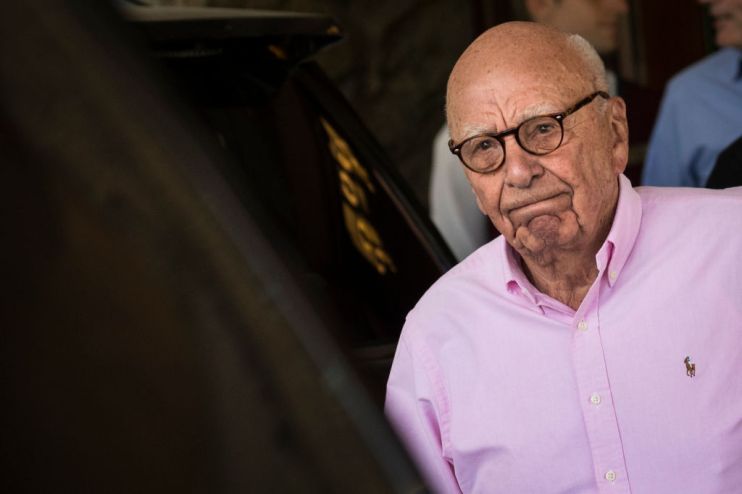Rupert Murdoch ditches plans for ‘commercially unviable’ TV channel

Rupert Murdoch’s News UK empire has scrapped plans to launch a TV news channel after a review found the project was “not commercially viable”.
News UK, which owns the Times and Sun newspapers, had been developing plans to regain a footing in the TV market with a new channel focused on delivering news programming via streaming.
The company had tapped former CBS president David Rhodes to lead the venture and had already unveiled plans for its flagship evening show.
But in an email to staff chief executive Rebekah Brooks said Rhodes was stepping down in June and plans for a traditional TV channel had been axed.
“Whilst there is consumer demand for alternative news provision, the costs of running a rolling news channel are considerable, and it is our assessment that the payback for our shareholders wouldn’t be sufficient,” she wrote in the memo, which was seen by the Spectator.
Instead, News UK will focus on producing live and on-demand content to be delivered via streaming platforms. It is understood the company is exploring potential distribution deals, but could also make use of its own services.
The group’s TV division will now be folded into its audio unit and will be led by Scott Taunton, currently chief executive of News UK’s Wireless radio division.
The revamped business unit reflects the company’s continued efforts to film its radio content and distribute clips on social media — a strategy that has proved effective for its stations Times Radio and Talk Radio.
A source close to News UK insisted the decision was in line with the company’s “connected TV” strategy, but said a traditional broadcast channel was “not the future”.
The about-face will raise eyebrows amid the imminent launch of GB News, a new linear news channel spearheaded by veteran journalist Andrew Neil.
GB News has already secured £60m in funding and begun a recruitment drive for 140 new roles, including high-profile figures such as Dan Wootton and Alastair Stewart.
While GB News and News UK TV had been pursuing different strategies, the ventures both reflected attempts to tap into demand for opinion-led news programming, as well as growing discontent with mainstream broadcasters such as the BBC.